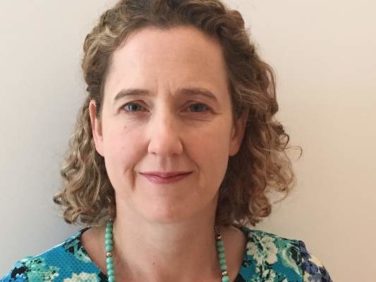I remember waking up with my left hand swollen, red, in excruciating pain, and difficult to move. For several months prior, I had been exhausted, achy, and stiff. As a relatively new mother attempting to manage the age-old balance of family life with the rigors of fellowship training, I attributed those physical changes to personal and professional circumstances.
Yet, that morning, faced with a new rather troubling symptom, I did what my husband had suggested numerous times before and finally visited a doctor. After an emergency evaluation and referral to a rheumatologist, my diagnosis was clear: I had mixed connective tissue disease.
I became frantic – not because of the pain I was experiencing but because I would miss an important Grand Rounds that all of the fellows were expected to attend. I had struggled to decide if I should see the doctor or deal with it and head to Grand Rounds. In retrospect, the decision should not have been that agonizing. Most people would not have hesitated about making a choice between risking their health or pleasing their superiors. However, I am not most people; I am a doctor, and we do not get sick.
This is the message heard throughout medical school and training. Often, the message is not overt but communicated in a manner that no trainee could question: Take care of yourself, but do not take time off. It is fine to be sick but not so sick that you are unable to work.
For example, many programs have systems in place in which in case of illness or emergency, a trainee can call and another trainee can take her place – no questions asked. Yet, almost as quickly as this policy is described, it is followed with the disclaimer: “No one ever uses it.”
Why does this happen? Trainees are not immune to illness, but the expectation is that work supersedes personal concerns.
Despite receiving much support during my own training, my experience was often tainted by the need to push through. How could I be comfortable assuming the role of patient when at work I would hear my colleagues say things like, “I went to rounds at the hospital while I had pneumonia,” and, “I had conjunctivitis, put a patch on my eye, and went to work,” and, “she worked while getting chemo several times a week.”
For us, it seems that to be sick and to continue working is a badge of honor.
The U.S. health care system is under stress like never before. Newly insured people are coming into the system by the millions amid a shortage of physicians in primary care ( Healthcare 2013;1:8-11 ) and across many specialties, including my own of psychiatry .
Against this backdrop are the expectations for physicians to be superheroes. It seems as if our profession is unlike any other. We are supposed to be healers of others but not ourselves.
After I became sick, I checked the literature in an effort to find support and insight into how medicine supports its own. But I found that discussions about these kinds of issues don’t seem to be available.
It’s time to discuss why support seems to be limited in residency programs, and why physicians feel a need to hide their illnesses for fear of losing employment. Why do the cultural expectations of our profession make us feel like we are less of a physician because of our illnesses?
Medicine needs to change so that we are treated not as flawless perfectionists but as humans who dedicated ourselves to healing and saving lives.
Dr. Thomas is a psychiatrist living in Warwick, R.I.



